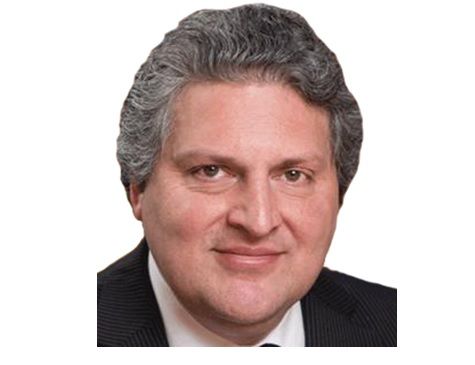THE DEPARTURE OF RBS chairman Sir Philip Hampton to a similar role at troubled GlaxoSmithKline follows news that embattled BNP Paribas chairman Baudoin Prot is stepping down and comes just a couple of weeks after Barclays named John McFarlane as its new chairman in place of Sir David Walker.
In this phase of the banking cycle, banks have a prime opportunity to appoint chairmen with strong banking backgrounds that can help institutions navigate the last knocking of the financial crisis and the new regulatory status quo and position their banks for growth. They shouldn’t waste it.
Hampton’s decision to step down was no surprise but the hunt for a new chairman is no less interesting. I do wonder about his timing, though. If you recall, Hampton joined RBS in 2009 just as it cratered in the aftermath of the global financial crisis and that by-now infamous ABN AMRO takeover. In the same way as former CEO Stephen Hester was ousted after he’d done a lot of the heavy lifting to get RBS back into shape but before the job was complete, Hampton is similarly leaving before the bank begins its long march back into private ownership.
RBS has transcended its five-year period of rehab with the job still unfinished but the stars are arguably much better aligned for that to happen now. On what basis do I say that? Well a few things. Internally, the balance sheet has been halved and refocused, there is reduced reliance on short-term wholesale funding, a dramatic reduction of the non-core division, the bank is out of the government insurance and liquidity programmes, has reached agreement with the UK Treasury on retirement of the Dividend Access Share, has cancelled the Contingent Capital Facility, sold Direct Line and initiated the sale of Citizens in the US.
On the latter, even though RBS priced the first slug of 25% of Citizens stock below the range, the selldown still put US$3bn in the bank. RBS is also well placed to price future selldowns at a better price as its moves towards the end-2016 deadline to sell the remainder. It should help too if CEO Bruce Van Saun pushes ahead as planned with his quest to double Citizens’ ROE to 10% and cut back current levels of over-capitalisation.
Externally, the banking story is taking hold in the UK. Lloyds Banking Group has sold a further 11.5% stake in TSB in the past few days in a £161m (US$262m) placing with no discount on the back of strong demand. In fact, the deal was covered within an hour. Lloyds’ stake in TSB has been cut to 50% (following the 38.5% sale in June) and leaves the bailed-out bank well placed to sell the remainder by the end-2015 deadline. The whole TSB story has had a positive aura surrounding it. And with planned UK listings by Aldermore Bank and Virgin Money, the story looks set to run.
With the story building, why didn’t Hampton didn’t stick around until the first selldown of the UK government’s stake had been at least diarised – unless that’s still seen as too far off and the urgency of the job he’s taking on at GSK just had to take precedence?
Banks have a prime opportunity to appoint chairmen with strong banking backgrounds
WHICH BRINGS ME back to the chairman theme. In seeking Philip Hampton’s replacement, RBS should appoint someone with a solid banking background. Barclays has done just that and RBS’s nominations committee should take note.
Hampton is broadly considered to have done a decent job. And at the time of his appointment, his background as a finance director offered a highly relevant set of key skills. But if you buy the story that RBS is sitting in the midst of a rising UK economy and is well on its way to getting through its inglorious past few years, what the bank needs now is someone who can work with chief executive Ross McEwan to steer the bank back into a rising market.
At Barclays, John McFarlane is well placed to help CEO Antony Jenkins through this current period of change and beyond. He’s currently chairman of UK insurer Aviva but is a career banker. His CV is impressive: chief executive of ANZ Bank for a decade until 2007 with senior positions at Standard Chartered and an 18-year stint at Citicorp (a predecessor of today’s Citigroup).
McFarlane also has experience of retail/consumer and investment banking; he ran Citicorp Investment Bank in London for three years until 1990, for example. Jenkins got to know McFarlane when they both worked at Citicorp, so have known each other for some considerable time. This bodes well.
BNP PARIBAS LOOKS by all accounts set to appoint Jean Lemierre to replace Prot on September 26. He’s currently an adviser to the bank, and was reportedly heavily involved in dealing with the US authorities on behalf of the bank over the recent fines saga which took such a toll on Prot, who was CEO during the period during which the illegal actions took place.
I reckon Lemierre will be good for BNP Paribas if indeed he is appointed. For a start, he’s well-known in international government and finance circles. He was EBRD chief for a considerable period of time, and is well versed in sovereign restructurings: he ran the Paris Club for a couple of years and more recently co-headed the bondholders’ committee during the Greek debt renegotiation. Senior ranks of French banks can resemble the French civil service at times; Lemierre certainly knows the back channels of French government and politics but he’s an internationalist with a good reputation and I think he’ll be a welcome addition.
